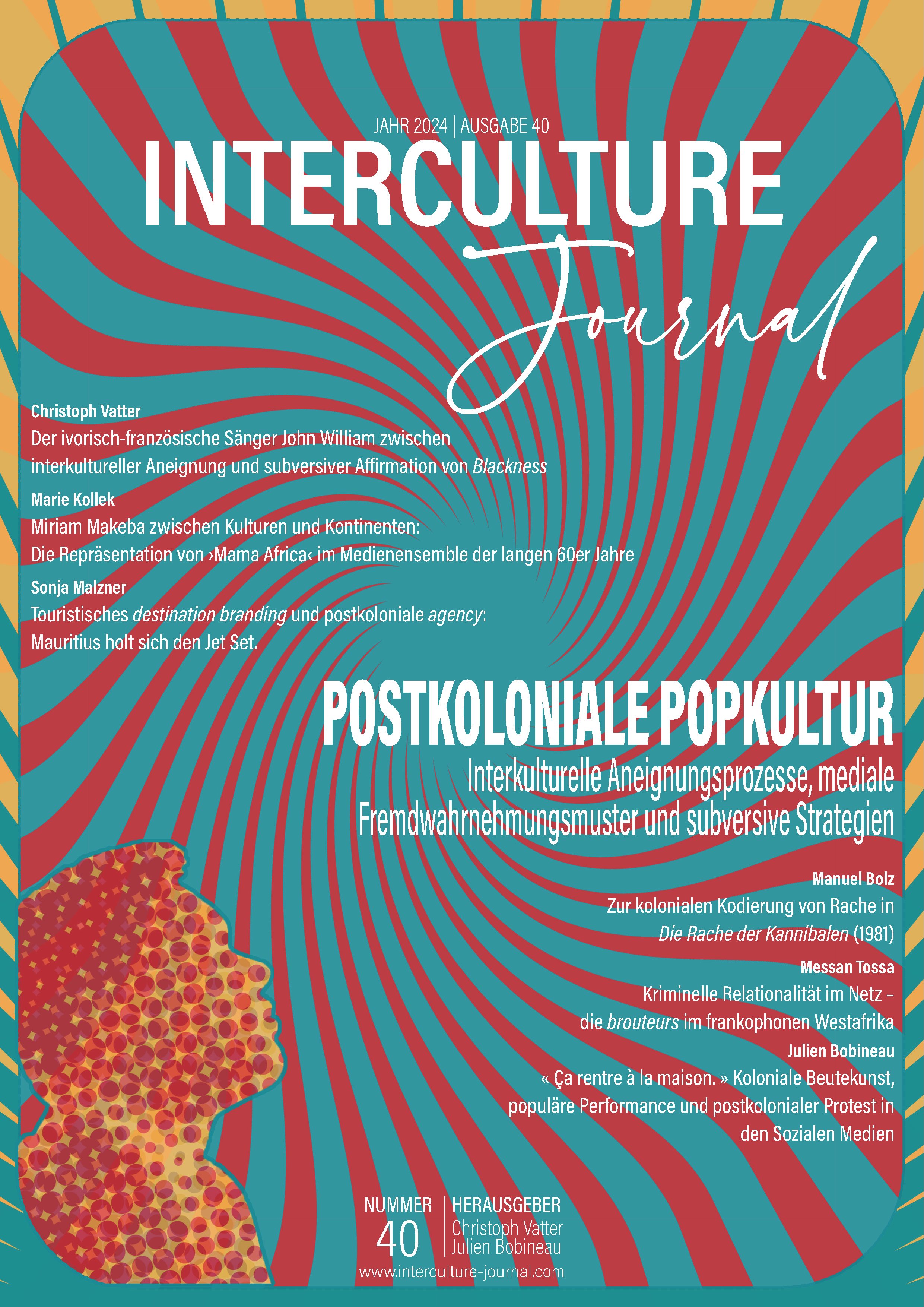Tourist destination branding and postcolonial agency
Mauritius gets the jet set
Abstract
The article analyses the tourist destination branding of the island nation of Mauritius following its independence in 1968 and its use as a means of postcolonial self-assertion. Primarily thanks to the image campaign of Gaëtan Duval, Minister of Foreign and Tourism Affairs, Mauritius was successfully positioned as a luxurious and exclusive travel destination. The branding strategy, which involved prominent personalities and international media, served not only economic purposes but also the foreign policy positioning and cultural integration of the country into the Western world. Using examples of media portrayals in Germany and France (the two most important countries of origin for tourists in Mauritius), it is shown how Duval leveraged his popularity and connections with European celebrities to spark interest in Mauritius. Stars such as Brigitte Bardot and Curd Jürgens were specifically recruited for destination branding by financing their stays in Mauritius and subsequently presenting them to a large audience in German and French mass media, especially on television. These portrayals combined longings for colonial nostalgia with modern tourist fantasies, creating an image that tied both to the past and emphasized modern reality. Mauritius’s tourist image campaign under Duval can be seen as a form of postcolonial appropriation of European cultural phenomena to achieve economic and political goals, as it demonstrates how tourism advertising in the postcolonial context can also be used as a political instrument. This highlights the potential of tourism advertising in the struggle for postcolonial self-determination and economic independence.
Downloads
Published
Issue
Section
License
Copyright (c) 2024 Sonja Malzner

This work is licensed under a Creative Commons Attribution-NonCommercial-NoDerivatives 4.0 International License.
Alle Beiträge im Interculture Journal erscheinen unter der Lizenz CC-BY-NC-ND 4.0.


